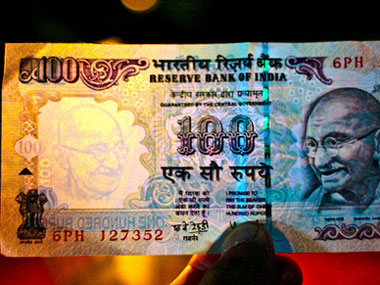A new tax proposal by the government could hurt flows of anonymous foreign funds into shares, analysts said today, dealing another blow to equity markets that has been buffeted by worries about slowing corporate earnings growth and stymied economic reforms.
Finance Minister Pranab Mukherjee in his budget presented on March 16 for the year starting on April 1 proposed to introduce the GAAR in order to “counter aggressive tax avoidance schemes.” He said it would be ensured it was used in appropriate cases.
P-notes are issued by foreign portfolio investors registered with the market regulator, or by their sub-accounts, to investors overseas and they offer the buyer anonymity. Investments through these instruments are estimated at Rs 1.8 lakh crore. If these notes are going to be taxed due to GAAR provisions, many foreign investors will have to re-visit their strategies.
[caption id=“attachment_256976” align=“alignleft” width=“380” caption=“Nicocrisafulli/Flickr”]
 [/caption]
[/caption]
The main 30-share Bombay Stock Exchange index though is trading higher today, it has erased most of its gains due to uncertainty about the tax proposal. Market experts warn that unless there is clarity on the exact details of the GAAR guidelines, the markets may see more pain.
“We do not have clarity on the exact modalities, but this could have the effect of shutting down the P-note to invest in India,” said Macquarie in an email, referring to the GAAR proposal.
The brokerage said stocks bought through participatory notes could be subject to short-term capital gains tax of 42 percent and long-term capital gains tax of 21 percent as a result of the new taxation proposals.
Domestic brokerage IIFL said the introduction of GAAR could give powers to the tax department to deny double taxation treaty benefits to foreign funds based out of tax-havens like Mauritius.
A large proportion of foreign investment in the stock market comes through companies registered in the Indian Ocean island and are exempted from tax in India under a Double Taxation Avoidance Agreement with Mauritius.
Overseas portfolio investors, routing their investments via countries like Mauritius, currently do not pay any tax on short-term capital gains, IIFL said in a note to clients.
“If the bill is passed as it is, then from 1st April 2012, FIIs domiciled in such treaty locations may have to prove that they have created this structure for genuine business purposes and not just for avoidance of tax,” it said.
According to a CNBC-TV18 report, the I-T department till ask FIIs and foreign investors to file tax residency certificates if they are situated in a country with which India has a DTAA.
As much as 40 percent of that investment has got into India through Mauritius. This means, FIIs set up an investment holding company in Mauritius and invest through a company registered in that country. The reason for that is the double taxation avoidance treaty. Such a treaty allows these entities to take advantage of low tax rates in Mauritius. These investments are not taxed at Indian tax rates.
Agencies
)